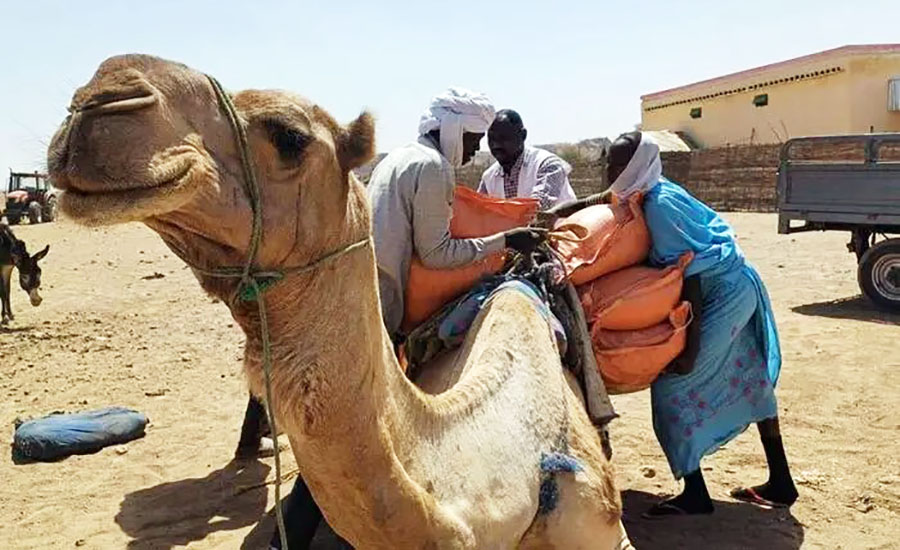
Rainy season threatens to exacerbate malnutrition crisis in Darfur
Moatinoon
Doctors Without Borders (MSF) said that the approaching rainy season in Sudan threatens to exacerbate food insecurity at a time when the country is already suffering from a severe malnutrition crisis, with children under five and pregnant and lactating women among the most vulnerable.
The rainy season, which runs from June to September in the war-torn Darfur region, is a critical period when food supplies dwindle and malnutrition and disease outbreaks worsen. With the two-year-old war between the Sudanese Armed Forces and the Rapid Support Forces (RSF) ongoing, the rainy season threatens the population in the midst of the worlds largest humanitarian crisis, which has displaced some 13 million people. Many struggle to secure the most basic necessities, including food.
"The humanitarian response is faltering as warring parties obstruct aid, insecurity deepens, and the rains are expected to wash away vital roads," said Samuel Seleshi, MSFs emergency coordinator for Darfur. He added, "Last year, floods destroyed roads around the Mornei Bridge, a vital link for aid from Chad. With the rainy season approaching, these roads will soon become impassable again."
The organization called on both warring parties to prepare for the rainy season by repairing key roads and bridges damaged in recent years and removing bureaucratic barriers to aid. A broader humanitarian response must also be funded.
"Donor institutions must fulfill their funding pledges to enable humanitarian actors to pre-position supplies before the rains begin," said Seleshi. "We have no time to waste. The people of Sudan cannot afford to wait any longer."
In South Darfur, communities have been subjected to extreme levels of violence. Many have been displaced, and women are often left to care for large families alone, cut off from income sources and support networks. With few options, people struggle to meet their basic needs.
“In West, Central, North, and South Darfur, where MSF works, displaced people tell harrowing stories of fleeing with nothing but the clothes on their backs,” said Seleshi. “Their basic needs for shelter, food, clean water, and healthcare remain unmet.”
“With food security deteriorating and malnutrition rates rising, urgent action is needed to scale up humanitarian assistance and ensure children and families receive the support they desperately need. Without a concerted response, the crisis will worsen, putting millions of lives at risk,” the organization said.

